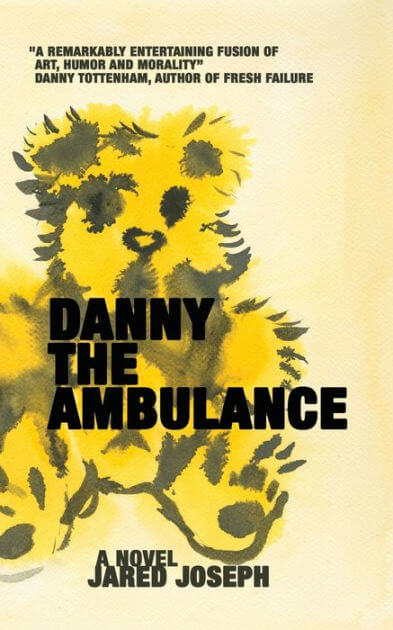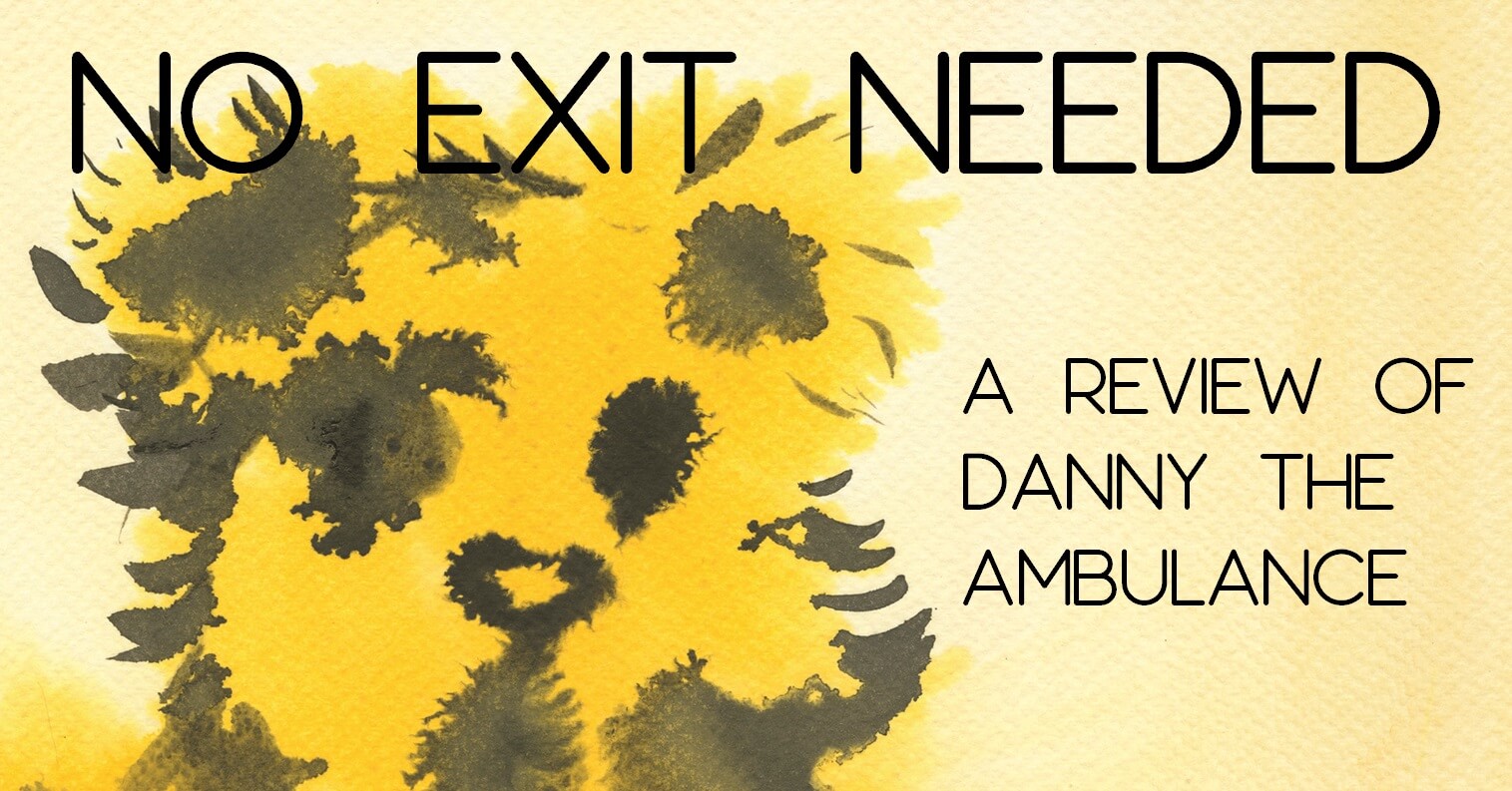 Is there any setting better suited for the manifestation of strange and surreal phenomena than a dive bar? Aren’t they already a makeshift vortex for uncanny bemusement, attracting the downtrodden, the eccentric, and the disillusioned? One such dive bar, nestled between a taqueria and a Dollar Tree, gets the star treatment in Jared Joseph’s new novel, Danny the Ambulance.
Is there any setting better suited for the manifestation of strange and surreal phenomena than a dive bar? Aren’t they already a makeshift vortex for uncanny bemusement, attracting the downtrodden, the eccentric, and the disillusioned? One such dive bar, nestled between a taqueria and a Dollar Tree, gets the star treatment in Jared Joseph’s new novel, Danny the Ambulance.
There’s nothing particularly noteworthy about this Santa Cruz bar, the Jury Room (it’s a real bar, I checked). It’s just a mid-sized bar with three designated parking spaces that happens to be within walking distance to the narrator, whose natural inclination is to not ruffle any feathers:
I’m anxious about watching the TV, I don’t want to watch the TV, and I don’t want the person sitting under the TV to think I’m watching him, I sit under the TV. I thought I liked watching TV. I don’t want to watch TV today. I’m the TV.
Over the course of a single night, this never-definitively-named narrator meets and interacts with the bar staff and several patrons. They order drinks, they play pool, they talk about things. Without fail, every single person he meets says their name is Danny.
What begins as an unlikely confluence of Dannys turns into a small, dreamlike mystery. It’s a Kafkaesque puzzle, but far more tolerable, with lower stakes—it’s pleasant, even. But why Danny? Why the Jury Room? Why is the narrator the only one who recognizes that something’s amiss? Maybe this can be explained by Danny the bartender, who muses:
[I]n late antiquity the ancient Egyptians had priests whose sole function was to guard the secret of the universe; their entire job rested on not divulging that secret. The belief was that if they did divulge the secret of the universe, the universe would crumble, it would end. Maybe, I think, one of them told a very very very very very very small portion of that secret, and a very very very very small portion of the universe crumbled, and that small portion is called The Jury Room, I think.
In more capable hands, we’d uncover the truth behind what’s going down at the Jury Room, but our narrator is no detective. He’s a Santa Cruz dive bar patron who seems content just poking his finger at the Danny situation to see what happens, like an existential lab technician.
An edge-of-your-seat pseudo-sci-fi thriller Danny the Ambulance is not, but what it lacks in nailbiting tension it more than makes up for with hilarious and philosophical dive bar discussion, which proves the perfect vehicle for Joseph’s exceptional dry wit. It’s the author’s clever, probing voice that keeps this story moving. Seemingly tangential non-Danny-related conversations between bar patrons about sestina poems, the Madonna complex, and gender dynamics in the film Grease all seem to have a knack for weaving their way back to Danny-adjacent themes of identity, roleplay, and disembodiment.
Just like in a real dive bar, things get hazier as the night wears on. Our narrator trades in his agency for feisty puns and wordplay, and there’s an extended story about a bear who’s also a teacher bemoaning her disinterested students. Dannys roam free and take over to a dizzying degree: “Danny is playing pool with Danny, now. I’m just sitting in the booth with Danny as she watches Danny, he’s solids in the game.” There’s a palpable push and pull between two thoughts: Are all these Dannys made of the stuff of life, or are we in a hell of our own making?
Engaging with the Dannys is a rich, pleasurable experience. We get to know their wisdom, their desires, their relationships, their fixations. Their humanity is detailed and undeniable. Yet, as a reader, I couldn’t help but absorb a passive level of “stuck-ness.” Hell isn’t far from the author’s mind; his previous novel, A Book About Myself Called Hell, is a comic deconstruction of Dante’s Inferno. Danny the Ambulance rings more like Sartre’s No Exit, but with no one itching to leave, as summed up by this passage between the narrator and Danny the bartender:
I think jail is a lot like a bar; mostly regulars, every now and then a newcomer. Lots of idle conversation about nothing, lots of time to talk, but you exhaust your past pretty quickly. Pretty soon everybody knows your past. Soon you’re just talking about the present and the future. But all of you know that there’s no future, or that the future resembles the present pretty exactly, barring some unexpected circumstances, like being suddenly freed or like some mutiny or like your parents dying, because otherwise you’re just going to be in the same place every night.”
“But I come to the bar of my own volition,” I say. “Trotsky was thrown in prison. It’s different.”
“Is it?” Danny says, and taps his forehead and smiles.
No exit needed, I say. If the Jury Room is supposed to be some kind of hell, we should all be so lucky to wind up in a hell like this. The drinks are cheap and talk is rich, things are weird, people are just trying to make it work, and you’re challenged to think about old ideas in a new light. What could be more fun than being surrounded by a brotherhood of your fellow Dannys?

